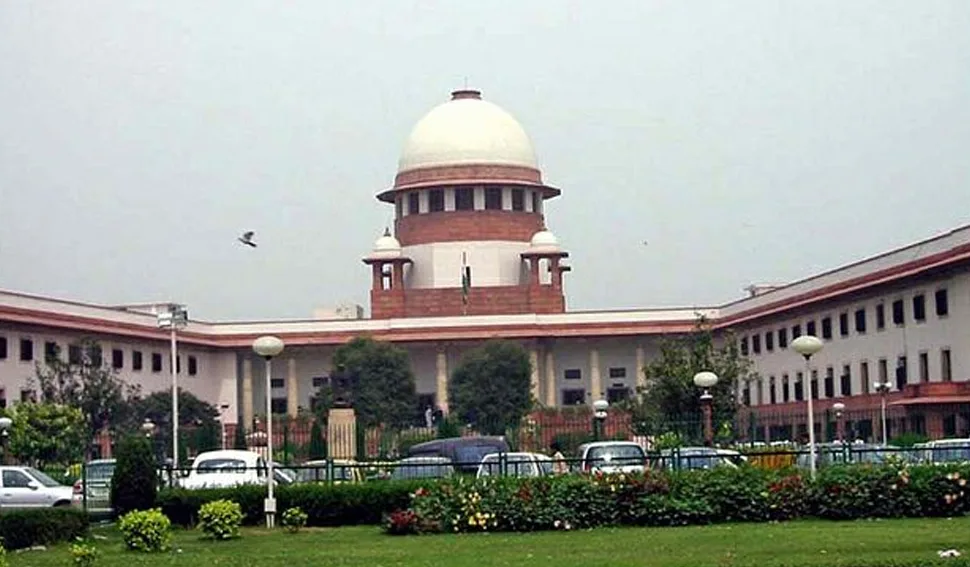SC restores Muslim man’s citizenship after 12 years he was declared foreigner by FT

The Supreme Court of India has restored the citizenship of a Muslim man from Assam who had been declared a foreigner by a Foreigners Tribunal more than 12 years ago. The Court ruled that a “grave miscarriage of justice” had occurred in the case.
In the case concerning Md Rahim Ali, the Supreme Court bench comprising Justice Vikram Nath and Justice Ahsanuddin Amanullah I pointed out significant gaps in the legal process that the police initiated in 2004 that led to Ali being declared a foreigner.
“In the present case, though it is mentioned that from inquiry it was revealed that the appellant had migrated illegally to Assam from Bangladesh after March 25, 1971 but nothing has come on record to indicate even an iota of evidence against him, except for the bald allegation that he had illegally migrated to India post 25.03.1971,” the court stated
“It is also not known as to who, if any person, had alleged that the appellant had migrated to India after 25.03.1971 from Dorijahangirpur Village under Torail police station of Mymensingh district in Bangladesh,” the court bench said.

The apex court’s judgement included a critical observation regarding the role of the police in the proceedings. The court emphasized that it was the duty of the police to provide detailed information about the basis on which they believed Md Rahim Ali had come to Assam from Bangladesh.
“In other words, the authority had been, as claimed, able to trace the appellant’s place of origin. Surely then, the authority had some material to back its assertion. The record does not show such material was given either to the appellant or the Tribunal by the authority,” the court further said.
Md Rahim Ali initially challenged the Foreigners Tribunal’s decision declaring him a foreigner in the Gauhati High Court, which initially granted a stay on the operation of the Tribunal’s order, temporarily but the plea was eventually dismissed by the High Court in November 2015.
Following the dismissal the plea, Ali filed an appeal before the Supreme Court.
In its analysis of the case, the court scrutinized the application of Section 9 (termination of citizenship) of the Citizenship Act and questioned the extent of the executive’s power under this provision.
The court also asked whether Section 9 of the Citizenship Act empowers the executive to arbitrarily select individuals, approach them, and declare, and suspect a foreigner.
Having found material for such suspicion absent in this case, the court observed that the state cannot proceed in such manner and neither can the top court countenance such approach.
“It needs no reiteration that a person charged or accused would generally not be able to prove to the negative, if he/she is not aware of the evidence/material against him/her which leads to the person being labelled suspect. Ipso facto just an allegation/accusation cannot lead to shifting of the burden to the accused, unless he/she is confronted with the allegation as also the material backing such allegation,” it added.
In its ruling on Md Rahim Ali’s case, the Supreme Court made several important clarifications regarding the procedural requirements and protections for individuals accused of being foreigners.
The court clarified that, at the initial stage, the material provided need not be scrutinized for its evidentiary value. However, there must be a basis for the allegations beyond mere suspicion.
“In the absence of the basic/primary material, it cannot be left to the untrammelled or arbitrary discretion of the authorities to initiate proceedings, which have life-altering and very serious consequences for the person, basis hearsay or bald and vague allegation(s),” the Court said.
The court said the authorities gravely faulted by construing the words ‘a copy of the main grounds on which he is alleged to be a foreigner in the rules to mean the allegations levelled against the person.
“This error at the very inception stage is enough to render a fatal blow to the entire exercise. The term ‘main grounds’ is not synonymous or interchangeable with ‘allegation(s)’. There is no, and there cannot be any, ambiguity that ‘main grounds’ is distinct and different from the ‘allegation’ of being ‘a foreigner’,” it added.
“Audi alteram partem does not merely envisage a fair and reasonable opportunity of being heard. In our opinion, it would encompass within itself the obligation to share material collected with the person/accused concerned,” it said.
The Court noted that the evidence produced before the tribunal had been disbelieved only on the grounds of a mismatch of actual English spelling of the names and discrepancy in dates.
The court bench opined that a casual entry by the enumerators cannot visit the appellant (Ali) with dire consequences.
“It is not uncommon throughout India that different spellings may be written in the regional/vernacular language and in English. Such/same person will have a differently spelt name in English and the local language. This is more pronounced where due to specific pronunciation habits or styles there can be different spellings for the same name,” the court further observed.
The court set aside the orders of the High Court and Foreigners Tribunal.
“We are not inclined to remand the matter to the Tribunal for another round of consideration. Putting an authoritative quietus to the issue, the appellant is declared an Indian citizen and not a foreigner. Necessary consequences in law shall follow,” it added.

Leave a Reply